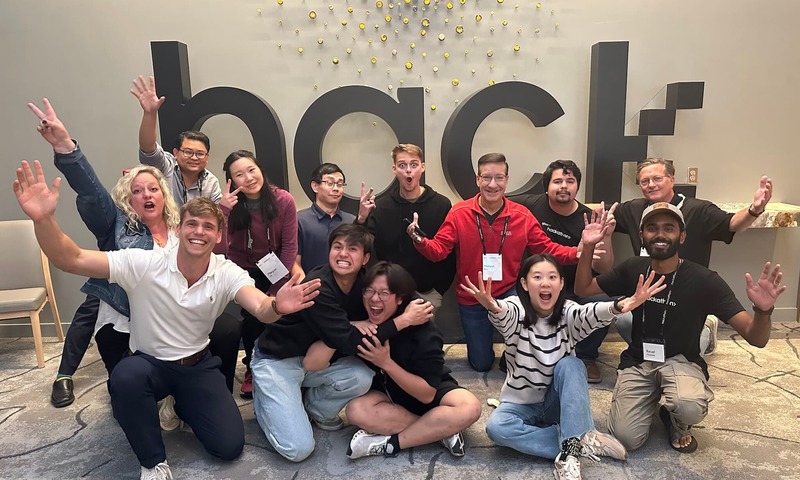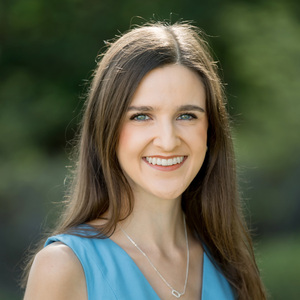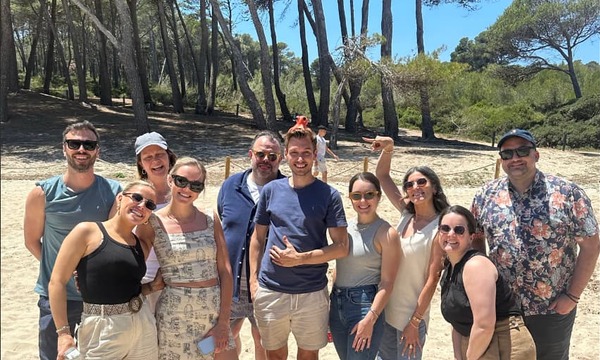AI is racing ahead. Biola University students are not just keeping up — they are leading the pack.
On October 10, 2025, the AI Lab at Biola made waves among seasoned tech industry professionals at the in Boulder, CO, taking home two awards and a total of $15,000 in prize earnings. Out of 98 participating teams, mainly comprised of senior engineers from giant companies such as Google and YouVersion, only nine awards were available and Biola teams took home two.
"I am so impressed by what these teams accomplished! We believe that it is imperative for our students to participate in the conversation about how AI can be used in alignment with biblical values and this hackathon provided them a front row seat to this conversation,” said Dr. David Bourgeois, professor in the Crowell School of Business and director of the AI Lab. “Beyond winning awards, these students were able to connect with those shaping the direction that AI is heading. We are looking forward to competing again next year.”
Hackathons are time-constrained events where participants collaborate to develop innovative software or hardware projects and solve real-world problems. The Gloo AI Hackathon, which hosted nearly 700 innovators from 48 states and 27 countries, united developers, ministry leaders, publishers, investors and innovators to create AI-powered solutions for the purpose of advancing the mission of the global church.
“The Gloo AI Hackathon was focused on ‘AI for Human Flourishing.’ This is in alignment with the work Gloo has done on how to take a Christian perspective on and the role artificial intelligence can play in that,” said Bourgeois. “All entries in the hackathon had to show how they aligned with human flourishing.”
The AI Lab at Biola, which launched in Spring 2024, became the headquarters this summer for students from all different majors and concentrations to come together to create and develop AI-powered apps that focused on elements that could be improved in the global church. Groups began forming in early September to prepare for participation in the event. Three of the nine projects developed in the AI Lab were chosen to represent Biola at the event.
In the category of “Hacking/Software Development,” the Biola team that created the American Sign Language translation app, “Ephphatha,” which translates to “be opened,” won the Hacker’s Choice Award of $5,000. The project is a voice-to-3D-ASL-interpretation system which would allow churches to have a pastor speak into a microphone and as a result have a live 3D model interpreted in ASL. It could appear on either large or hand-held screens. The team hopes to expand it beyond ASL into live translation into other languages. The four-member team included computer science majors Matteo Mellilo, En Duo Wang, Ryan Ong and Caleb Ayers.
“The main idea is to allow the church to always have on hand an ASL interpreter, so even the deaf can partake in a sermon,” said the team.
The app created to help users manage their screen time, “Flora,” won first place and the $10,000 prize in the “Vibe Coding” category. The project aims to help users make more conscientious decisions about their technology use by increasing their awareness of when and why they use their phones. Guided by “Flora the Focus Fox,” users are met with weekly reflections on well-being and productivity goals.
“The app employs AI to facilitate guided daily and weekly reflections, asking users about their feelings and productivity to help them understand their habits. Based on these self-check-ups, the AI helps set new, personalized goals to fit the user's needs,” said the team.
Of the five-person team, including the AI Lab Associate Director, Stefan Jungmichel (MBA ’24), three of them are freshmen at Biola. The team included computer science major Megan Lai, worship arts major Ben Currie and business administration major Felicity Zhang with MBA student Gabriela Carvajal Melendez as a contributor.
“I am so proud of our students for going through this entire process and coming out with such great success at the end!” said Jungmichel. “Most of them had no prior coding experience and had to learn critical skills to finish their projects. I have seen how they took on challenges with such joy and optimism, which was wonderful to experience!”
What made Biola students stand apart from the rest of the teams was their focus on not only answering the question “Can we build this?” but also “Should we build it? And how can we build it to reflect the goodness of its Creator?”
“I am so thrilled by how our students represented Biola, competing alongside nearly 700 technologists and earning two of the 11 awards,” said Dr. Michael Arena, dean of the Crowell School of Business. “Even more inspiring was how they led with curiosity, humility and a deep sense of purpose.”
The Artificial Intelligence Lab at Biola serves to be a leading resource center for Biola faculty, staff and students to understand and responsibly utilize AI in a moral and ethical manner, rooted in Christian values. With the growth of the AI Lab and Biola’s newest development of over $40 million gifted to the division of technology, , Biola is a leading learning environment for students to grow and innovate. Learn more and apply today.
Written by Sarah Dougher, media relations specialist. For more information, email media.relations@biola.edu.
 Biola University
Biola University


.jpg)
.jpg)
.jpg)